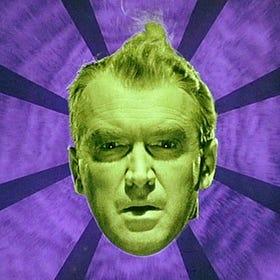I was meant to meet Matt Zoller Seitz once or twice, the first time in 2009 and the second in 2010. We couldn’t make it work and it didn’t happen.
Matt is very easily the greatest television critic of the Platinum Age. I have stolen some of his ideas in my own television writing. I genuinely cannot think of someone better. His contemporaries, including some of his friends, leave me cold. Which is always why I found it rather odd that, when Roger Ebert died, Matt took over Ebert’s website.
This is going to get a bit wonky, so feel free to bow out now.
I come from a different school of criticism than either Matt or Ebert. I came up through film school and did a semester of Honours-level Cinema Studies. (The reasons I stopped require another post, but let’s agree to disagree about Lacan.) I grew up with Adrian Martin and Nicole Brenez. I think a lot of us who were part of the film-blogging generation of the Bush years did, or pretended to have done. Even now, I don’t love many of Ebert’s reviews, not because I disagree with them as value judgements (though he was very often wrong), but because I don’t think they’re very good as pieces of writing. (If it makes you feel any better, I don’t much rate Kael, either.) For me, Rosenbaum is the great American newspaper critic of cinema, at least in my lifetime. But this is also because I read him first. His pieces on Dead Man (a film that Ebert didn’t like at all) and The Young Girls of Rochefort were, for me, the model. That was what we were trying to do. Reading someone, when you’re young, matters. It certainly colours everything that follows.
Matt is a glorious, beautiful writer. But he’s a glorious, beautiful writer—and this is certainly the thing that I’ve had to deal with—in the vein of Ebert. He understands the need to surmise, he understands the need to recap, he understands the necessity of judgement as it pertains to the reading audience. But he’s also excellent at explaining, which I never thought Ebert was. Like Adrian, who always snuck a little bit about form and technique into his (much shorter) reviews for The Age, he has always been incredibly attuned to how a thing is made, and why. He knows what a shot is about, why its framing matters, what the sound is doing. But, like Ebert, he also knows how to read things on the moral level, including what I said a sentence ago about the framing of a shot. (You already know my views on the difference between moral aesthetics and political content. Matt can write about both.)
I would point you to everything Matt ever wrote about Mad Men, or about Wes Anderson, but I was caused to think about him today because of his review of—of all things—BlackBerry. I have now seen the film twice, and both times I liked it very much. Matt’s review of it is just that: a review. It’s a review that Ebert may have written. But it is well-written: funny, clever, attuned to both the way that the film is made and the politics of what it’s about. It ends, like most newspaper reviews, too soon, but I don’t believe that to be on him (even though he was his own editor). I like Ebert’s ‘Great Movies’ series, but I do not much like his day-to-day, out-of-four stars stuff. But I didn’t grow up with him. I grew up with Matt Zoller Seitz, and I’d read him review the phone book. For this alone, I do owe Ebert a level of debt.
Nothing if not critical
Those who have bothered to stick around will recall that, in May, I wrote about Matt Zoller Seitz and Roger Ebert.




****/****
Always wondered why four? unnatural number, not pleasing.